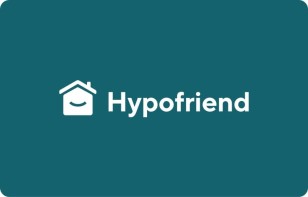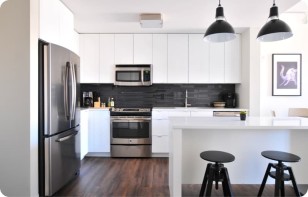Case Study: What Melun Can Teach Us About Zossen’s Future
As rising housing costs reshape both Paris and Berlin, this article examines how Zossen, near Berlin, could mirror the investment success of Parisian commuter town Melun, offering a timely opportunity in high-quality, subsidized new builds.Updated on 30 May 2025

Berlin and Paris: Two Capitals, Same Pressure
Big cities around the world are facing the same story:
Rising housing prices
Urban migration
Families pushed outward
Let’s take a look at Berlin and Paris:
Metric | Paris | Berlin |
|---|---|---|
Avg. property price (2024) | ~10.000 €/m² (inner city) | ~6.000–7.500 €/m² (center) |
Population (metro) | ~12 million | ~6 million |
Commute by regional rail | RER, 30–50 min to the suburbs | RE/S-Bahn, 30–50 min |
Work trends | Post-COVID remote increase | Same: 25–30 % hybrid |
Pressure on affordability | Very high | Increasing rapidly |
In both cities, people are increasingly choosing more space — moving beyond the ring roads and out toward connected towns and commuter hubs.
Paris had its moment. Berlin is now having its early commuter boom moment.
And that’s where Melun and Zossen come in.
In 2014, Melun wasn’t on many investors' radar.
Located about 55 km from central Paris and 38 km from Orly Airport, it was considered a far-out commuter town — quiet, suburban, not particularly hot.
But as the capital’s property prices surged and remote work took hold, Melun quietly became one of the Paris region’s best growth stories.
Melun's +31 % Price Growth in 10 Years
In 2014, new build homes in Melun sold for around 2.412 €/m². By 2025, that number had risen to 3.162 €/m² — a +31 % increase over ten years, which was about 10 % more than French inflation and 5 % more than overall French house price increases.
This happened without hype, without speculation, just from a natural, sustained rise in demand as more Parisians moved outward in search of space, affordability, and connectivity.

Source: Estimates as of 04/01/2025 from LE FIGARO
Melun +17,5 % Population Growth Since 2006
Between 2006 and 2022, Melun’s population grew from ~37.200 to ~43.700, an increase of:
People: +6.500 | Population growth: +17,5 % |
The sharpest growth came post-2018, as affordability pressures in Paris pushed people further out and infrastructure improved.
Enter Zossen: Berlin’s Melun?
Now let’s look at Zossen, a town just outside Berlin that mirrors Melun in all the right ways — and may even have a head start.
Metric | Melun (Paris) | Zossen (Berlin) |
|---|---|---|
Distance to City Center | 55 km | 40 km |
Commute Time | ~80 min (RER D) | ~60 min (RE5) |
Distance to Airport | 38 km to Orly (ORY) | 27 km to BER |
New Build Price | 3.162 €/m² (2025) | 3.800–4,500 €/m² |
Energy Efficiency | Mostly older stock | Mostly KfW 55 / QNG+ |
Tax Savings | < 2% | Up to 22 % back (QNG+) |
Population Trend | +17,5 % (2006–22) |
Build your wealth in Germany
Learn how to invest in energy-efficient new builds
What makes Zossen attractive?
Zossen’s new build prices — especially QNG+ — might seem high compared to Melun or other commuter towns. See available QNG+ homes.
But here’s the catch: you're buying a fundamentally different product. This level of energy efficiency costs about 500 euro/sqm more to develop.
Zossen's QNG+ Advantages:
Repayment-free KfW financing and up to 150K€ per unit subsidized
22% of the property value recovered through tax refund
Lower energy costs, higher rental demand, and better resale value
Future-proof against tightening energy standards and building codes
Compared to Melun’s mostly older stock, Zossen's new developments are designed for the next 30 years, not retrofitted for the last 10. Moreover, the core fundamentals, like building cost and bureaucracy, make building in Germany much more expensive. Learn more about how depreciation can maximize your tax refund in Germany.
Conclusion: Timing Is Everything
Melun became valuable not because of speculation, but because the fundamentals were there:
proximity, demand, and infrastructure.
Zossen shares those fundamentals and adds higher build quality, German subsidies, and earlier-stage pricing.
You’re not too late. At Investfriend, you might just be early.

